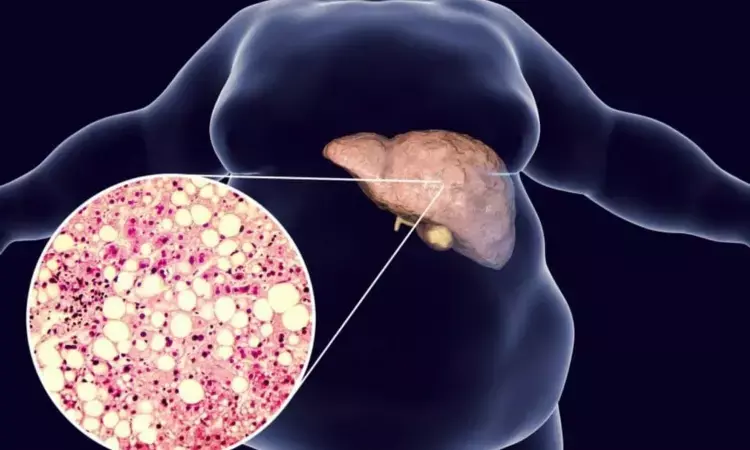- Home
- Medical news & Guidelines
- Anesthesiology
- Cardiology and CTVS
- Critical Care
- Dentistry
- Dermatology
- Diabetes and Endocrinology
- ENT
- Gastroenterology
- Medicine
- Nephrology
- Neurology
- Obstretics-Gynaecology
- Oncology
- Ophthalmology
- Orthopaedics
- Pediatrics-Neonatology
- Psychiatry
- Pulmonology
- Radiology
- Surgery
- Urology
- Laboratory Medicine
- Diet
- Nursing
- Paramedical
- Physiotherapy
- Health news
- Fact Check
- Bone Health Fact Check
- Brain Health Fact Check
- Cancer Related Fact Check
- Child Care Fact Check
- Dental and oral health fact check
- Diabetes and metabolic health fact check
- Diet and Nutrition Fact Check
- Eye and ENT Care Fact Check
- Fitness fact check
- Gut health fact check
- Heart health fact check
- Kidney health fact check
- Medical education fact check
- Men's health fact check
- Respiratory fact check
- Skin and hair care fact check
- Vaccine and Immunization fact check
- Women's health fact check
- AYUSH
- State News
- Andaman and Nicobar Islands
- Andhra Pradesh
- Arunachal Pradesh
- Assam
- Bihar
- Chandigarh
- Chattisgarh
- Dadra and Nagar Haveli
- Daman and Diu
- Delhi
- Goa
- Gujarat
- Haryana
- Himachal Pradesh
- Jammu & Kashmir
- Jharkhand
- Karnataka
- Kerala
- Ladakh
- Lakshadweep
- Madhya Pradesh
- Maharashtra
- Manipur
- Meghalaya
- Mizoram
- Nagaland
- Odisha
- Puducherry
- Punjab
- Rajasthan
- Sikkim
- Tamil Nadu
- Telangana
- Tripura
- Uttar Pradesh
- Uttrakhand
- West Bengal
- Medical Education
- Industry
Loneliness and social isolation linked to increased risk of non-alcoholic fatty liver disease, study finds

Loneliness and social isolation have been linked to an elevated risk of non-alcoholic fatty liver disease (NAFLD), according to a groundbreaking study conducted by researchers from Central South University and the Army Medical University in China, in collaboration with the Karolinska Institutet in Sweden. Published in Health Data Science, the study analyzed data from over 400,000 participants in the UK Biobank, shedding light on the far-reaching impacts of social factors on liver health.
The research team, led by Professor Jiaqi Huang and Professor Jin Chai, sought to explore whether loneliness and social isolation-two critical but distinct social determinants of health-are associated with NAFLD risk. This chronic liver disease, affecting roughly 30% of the global population, has become a significant public health concern, driven by rising rates of obesity, diabetes, and aging populations. However, the role of psychosocial factors in NAFLD has remained unclear until now.
Using detailed assessments of participants' social connections and emotional well-being, the study found that loneliness increased the risk of developing NAFLD by 22%, while social isolation raised the risk by 13%, independent of traditional risk factors such as obesity, diabetes, and lifestyle behaviors. Remarkably, the associations persisted after adjusting for mutual influences between loneliness and social isolation, highlighting their independent effects.
The study’s mediation analysis revealed that unhealthy lifestyle behaviors, depression, and inflammatory responses partially explained these associations. Specifically, lifestyle factors like obesity, smoking, and irregular physical activity accounted for up to 30% of the observed risk linked to loneliness, while depression contributed an additional 33%. These findings underscore the importance of addressing both psychological and behavioral factors to mitigate NAFLD risk.
“Our findings provide robust evidence that loneliness and social isolation are not just mental health issues but also critical factors in the development of metabolic diseases like NAFLD,” said Professor Huang. “Interventions that target these social determinants, alongside promoting healthier lifestyles, could be transformative for public health.”
The researchers emphasize the need for further studies in diverse populations and longitudinal settings to confirm and expand these findings. They also call for integrated prevention strategies that address both the social and biological dimensions of health, highlighting the importance of community engagement, mental health support, and lifestyle interventions.
As the burden of NAFLD continues to grow, this study sheds new light on how fostering stronger social connections and addressing loneliness could play a pivotal role in liver disease prevention. The authors hope that their work will inspire public health initiatives aimed at alleviating the health impacts of loneliness and social isolation.
Reference:
Ya Miao, Xiaoke Kong, Bin Zhao, Fang Fang, Jin Chai, Jiaqi Huang. Loneliness and Social Isolation with Risk of Incident Non-alcoholic Fatty Liver Disease, UK Biobank 2006 to 2022. Health Data Sci. 2025;5:0220.DOI:10.34133/hds.0220
Dr Kamal Kant Kohli-MBBS, DTCD- a chest specialist with more than 30 years of practice and a flair for writing clinical articles, Dr Kamal Kant Kohli joined Medical Dialogues as a Chief Editor of Medical News. Besides writing articles, as an editor, he proofreads and verifies all the medical content published on Medical Dialogues including those coming from journals, studies,medical conferences,guidelines etc. Email: drkohli@medicaldialogues.in. Contact no. 011-43720751


